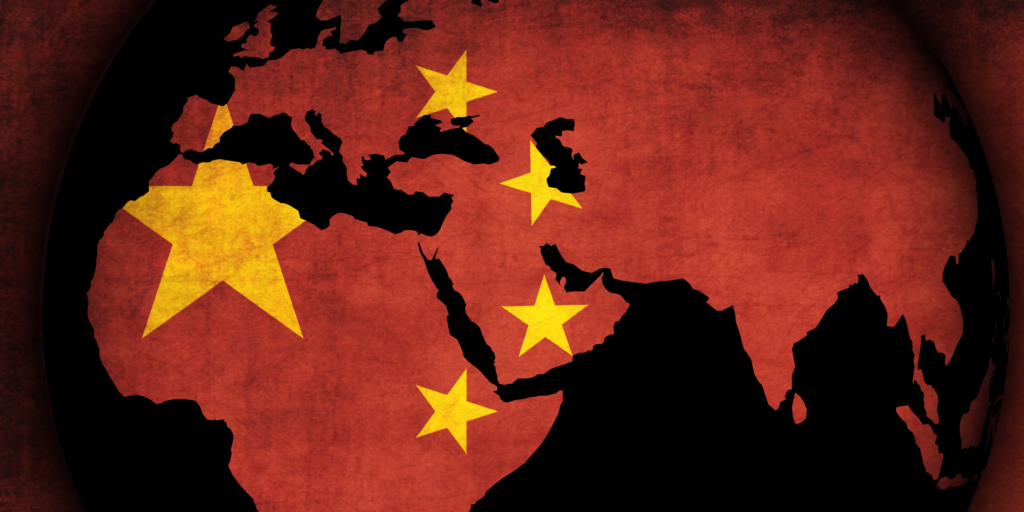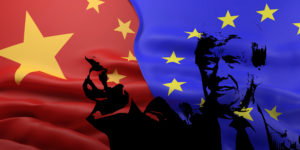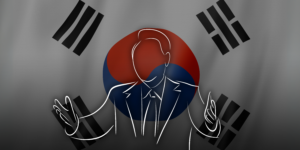In late July 2024, China captured global attention by facilitating a unity declaration between Hamas and Fatah, a potential diplomatic triumph for Beijing following numerous failed international attempts to reconcile Palestine’s conflicting political factions.
Key Takeaways:
-
The Hamas-Fatah agreement represents Beijing’s aspirations to increase its diplomatic presence in the Middle East and translate its rhetoric into more concrete actions.
-
China is using its mediation in the Middle East to challenge the United States’ influence in the region, but so far, its current victories remain separate from, rather than competitive with, those of the US.
-
While the Beijing Declaration has been presented as China’s second success at mediation in the Middle East, following the Saudi-Iranian rapprochement in March 2023, it remains to be seen whether it is a real breakthrough.
Hamas and Fatah, the two main Palestinian political factions, have been at odds since 2007, when Hamas ousted Fatah, the largest Palestinian party and the dominant faction within the Palestinian Liberation Organization (PLO) and the Palestinian Authority (PA), from Gaza. Ever since, Hamas—which won the most votes at the 2006 Palestinian legislative election, the last one held—has controlled Gaza, while Fatah has governed the West Bank. The two factions became uncompromising rivals, and all international efforts to reconcile the two groups failed—up until now. Indeed, an Egyptian-negotiated reconciliation pact broke down in 2017 due to their disagreements over security and governance. In 2022, all 14 Palestinian factions, including Hamas and Fatah, signed a reconciliation agreement in Algeria, vowing to hold elections the following year, but this, too, did not materialize. Hamas and Fatah again vowed to seek unity in meetings in Moscow in March this year and in Beijing the following month, only for another rift to emerge between them.
To increase its influence in the Middle East and challenge the United States’ role in the region, China has sought to become an important player in the Israeli-Palestinian conflict, even before Hamas’ assault on Israel on October 7th. In November 2023, Beijing proposed a five-point peace plan at the United Nations Security Council, aiming to facilitate a comprehensive implementation of the two-state solution and to ensure lasting peace in the Middle East. Beijing has also offered to mediate directly between the two sides and supported Palestine’s bid for full membership in the United Nations. However, China’s position has markedly changed since last year. Previously, Beijing was careful not to alienate Israel when engaging with the Palestinian factions. Since October 7th, however, Beijing has shifted from muted to undeniably one-sided, aligning with the Palestinians over Israel. This suggests that China is now, for the first time, fully engaging with the Palestinian groups to challenge Washington, which has backed Israel, while trying to translate its rhetoric into more concrete actions.
Given China’s “friends to all” policy, it was well placed to become the next mediating power between Fatah and Hamas, especially since many Western countries, including the United States and Israel, categorize Hamas as a terrorist organization and argue that it should have no role in post-war Palestinian governance. This diverging stance has been particularly evident following the October 7th attacks, after which several US senators and Israel called on the United Nations to designate Hamas as a terrorist organization. Switzerland also joined the ranks of several Western countries that have proposed new laws to ban Hamas.
Unlike the US and its allies, China believes that unifying Palestine’s two dominant factions is imperative for eventually establishing a Palestinian state. Contesting the West and vying for leadership of the Global South, Beijing’s active diplomacy in the Middle East provides it with a favorable position vis-á-vis the United States and opens the door for greater Chinese involvement in the region after the Israel-Hamas war.
Gains and sacrifices
An earlier round of talks between Fatah and Hamas in Beijing in April 2024 failed to yield any concrete agreement except a promise to meet again in June. However, this was postponed to July, with Hamas and Fatah blaming each other for the delay. Hamas accused Fatah of canceling the scheduled meeting, while Fatah condemned Hamas for refusing to reschedule the talks, leading to another rift between the two groups.
Nonetheless, they did show up for the July meeting, where both put pen to paper, along with 12 other Palestinian groups, on the so-called “Beijing Declaration”. It committed both factions to “comprehensive Palestinian national unity that includes all Palestinian factions under the PLO framework, and…to the establishment of an independent Palestinian state with Jerusalem as its capital”.
The declaration served their strategic goals. For Hamas, the pact and its engagement with a power like China significantly increased its political legitimacy at home and abroad, opening the door for its future involvement in post-war Gaza and Palestine. This would not have been possible had the mediation efforts been facilitated by the United States or its allies, who deem Hamas a terrorist organization. Fatah made significant concessions to Hamas, agreeing to compromise on several of its rival’s core demands, such as the right of the Palestinian people to “resist the occupation” by any means necessary, including armed struggle, which contradicts Fatah’s doctrine and was a chief point of contention between the two groups in the past.
However, from Fatah’s perspective, these concessions were necessary to achieve its strategic goals. Its main objective is to appease the increasingly angry Palestinian population, within which Hamas has gained substantial support since its October 7th attack and Israel’s subsequent retaliatory measures. Moreover, the Beijing Declaration, at least in theory, commits China to continue supporting the Palestinian cause in international organizations, such as the UN, and to provide Fatah with a platform to discuss the post-war reconstruction of Gaza. Finally, the declaration made sense for Fatah’s leader, Mahmoud Abbas, as his faction prepares for increased uncertainty regarding the future course of the Israel-Hamas war and over whether Washington’s stance on the Palestinian Authority changes if Donald Trump returns as US president after the November elections. A second Trump presidency would likely mean Washington gives Israeli Prime Minister Benjamin Netanyahu more freedom to prolong the conflict and could significantly worsen the Palestinian Authority’s standing in the region and undermine its security cooperation with Israel, which Abbas aims to preserve.
The global response
The unity agreement was met with a frosty response from Israel, with minimal coverage from state media, likely reflecting Israel’s belief that intra-Palestinian unity is unachievable. The skepticism is also rooted in Beijing’s past failures to unify Hamas and Fatah and the relatively long rivalry between the two factions. Overall, the consensus in much of Israel’s media is that the declaration lacks practical significance and was primarily signed by Hamas and Fatah to appease Beijing. Moreover, some Israeli analysts are concerned that the declaration will grant greater legitimacy to Hamas and sabotage US-led efforts for Israel-Saudi Arabia reconciliation.
Israel, the United States, and other Western nations dismissed the Beijing Declaration because of the inclusion of Hamas. Yet, broadly speaking, the Western response was unusually muted. By comparison, the declaration was received positively by Arab League countries and by the Secretary-General of the UN, António Guterres, who said he “very much welcomes the signing of the Beijing Declaration by the Palestinian factions”. Nevertheless, given the Palestinian Authority’s current identity and legitimacy crisis, a more concrete roadmap will be needed to prove that the Palestinian factions are serious about reconciliation.
Beijing’s growing ambitions to use diplomacy to gain a foothold in the Middle East should not be taken lightly. At the same time, assuming that Beijing’s mediating role could make it a realistic alternative to the United States regarding its political, security, and diplomatic capabilities would be a mistake. Some regional players, including those historically aligned with the United States, such as the United Arab Emirates and Saudi Arabia, have welcomed China’s growing presence in the region and embraced the strategy of diversifying their ties, yet Washington continues to be perceived as the main security guarantor to the Middle East. For regional actors, Beijing’s mediation efforts are relevant and welcomed in situations where the US has left a power vacuum or its alliances prevent it from acting as a viable conflict resolution facilitator.
China’s diplomatic achievements in the Middle East have primarily been on issues in which Washington could not play a constructive role. It was never in a position to even attempt to foster reconciliation between Hamas and Fatah or between Saudi Arabia and Iran. Its strained ties with Tehran and categorization of Hamas as a terrorist organization meant that bringing these adversaries to the same table would have been incredibly difficult, if not impossible, for the US. Thus, as of now, Beijing’s diplomacy in the region can be seen as separate from, and not necessarily competitive with, Washington’s.
Reconciliation with Chinese characteristics
China’s increased interest in conflict mediation builds on Saudi-Iranian rapprochement, when both states agreed to resume relations last year. Although Beijing’s role in the actual signing of the agreement was limited, it boosted China’s ambitions to be more diplomatically active in global issues, including the war in Ukraine, the conflict between Israel and the Palestinians, and the internal divisions between Palestinian factions. Although concrete steps towards achieving Palestinian unity have yet to be finalized, simply hosting a meeting between Hamas and Fatah allowed Beijing to enhance its image as a viable political alternative to the United States. It also provided a platform for Beijing to showcase the benefits of the “Chinese way” of resolving conflicts.
The Beijing Declaration and China’s greater involvement in the Middle East should be viewed through the prism of pragmatism and Beijing’s long-term goals. China’s quest to be a part of the solution to the Israeli-Palestinian conflict is yet another effort to portray itself as a responsible power and the leader of the Global South. It also goes well with Chinese President Xi Jinping’s Global Security Initiative and Beijing’s narrative that China is a global power that advocates for conflict resolution through dialogue, not confrontation.
This strategy seeks to win the support of Arab countries and secure a role for China in post-war Gaza, juxtaposing Beijing with Washington, which it depicts as a confrontational power whose reputation has worsened significantly among Arab citizens over the past two years, particularly following the Gaza war. In 2022, a survey of Arab youth conducted by the BBC revealed that 57% viewed the US as an enemy rather than an ally. Furthermore, out of the nine countries surveyed by the Arab Barometer in the same year, eight had more favorable views of China than of the United States. This trend has continued since the beginning of the Hamas-Israel war, with favorable views of the US declining in several Arab countries, including Jordan, Lebanon, Morocco, and Egypt.
Will the Beijing Declaration hold?
China’s efforts to broker the unity agreement have strategic and long-term objectives. Although there is still a long road ahead before Beijing can claim that it has successfully contributed to the unification of Hamas and Fatah, if successful, the Beijing Declaration could allow China to play a more significant role in the future settlement of the Israeli-Palestinian conflict. This would elevate China’s influence over that settlement to a level comparable with that of the United States, contributing to the narrative that Beijing is a responsible power while altering the geopolitics of the Middle East.
However, for the Beijing Declaration to bear fruit, achieving a ceasefire in Gaza—a goal that seems increasingly elusive—is imperative. The recent assassination of Hamas’ political leader, Ismail Haniyeh, which China condemned, and the subsequent appointment of hardliner Yahya Sinwar as his replacement further complicate the situation. In a conflict where one superpower is insufficient to restrain the parties and initiate a path to a peaceful resolution, Beijing and Washington need to put aside their rivalry. Indeed, they should recognize the complementary nature of some of their initiatives and focus on the shared goal of preventing the conflict from escalating into a broader regional and global war.







